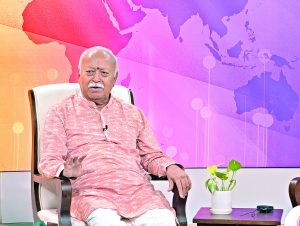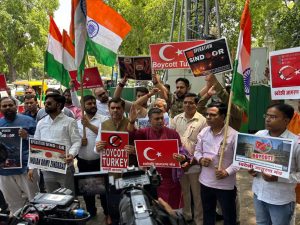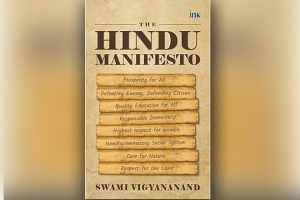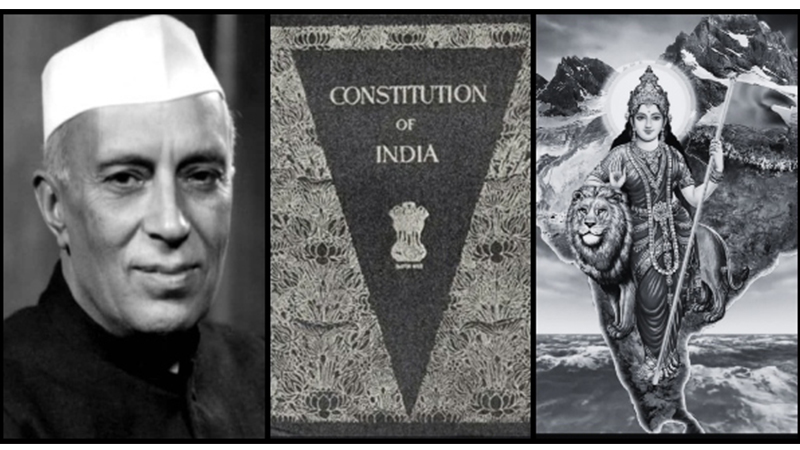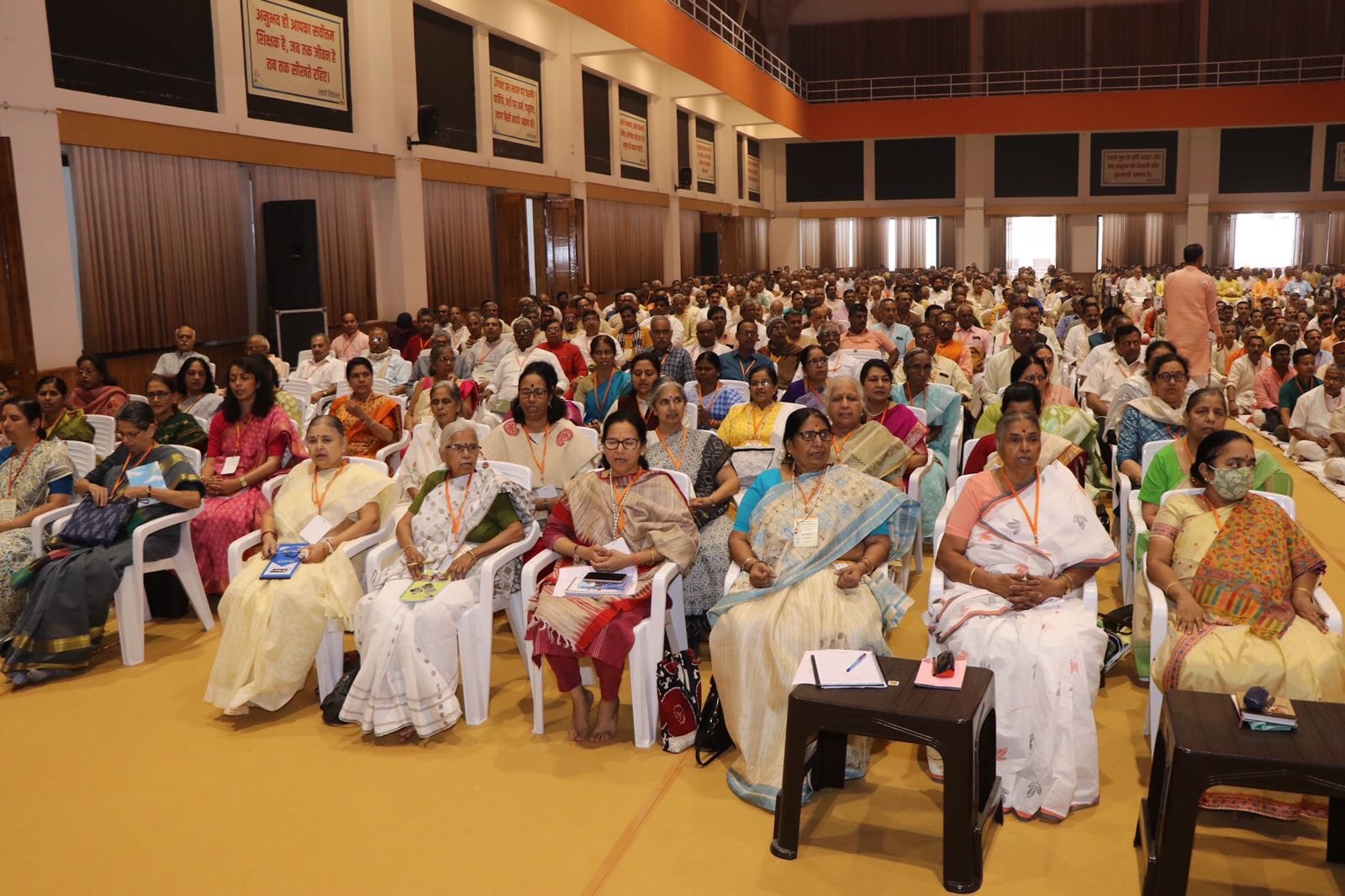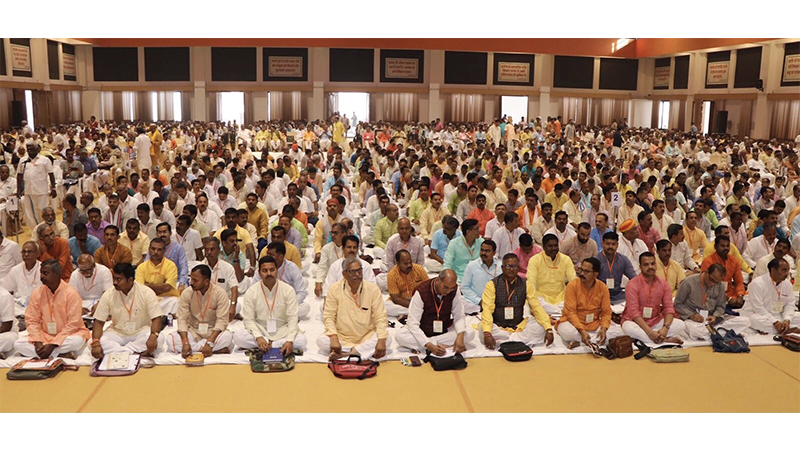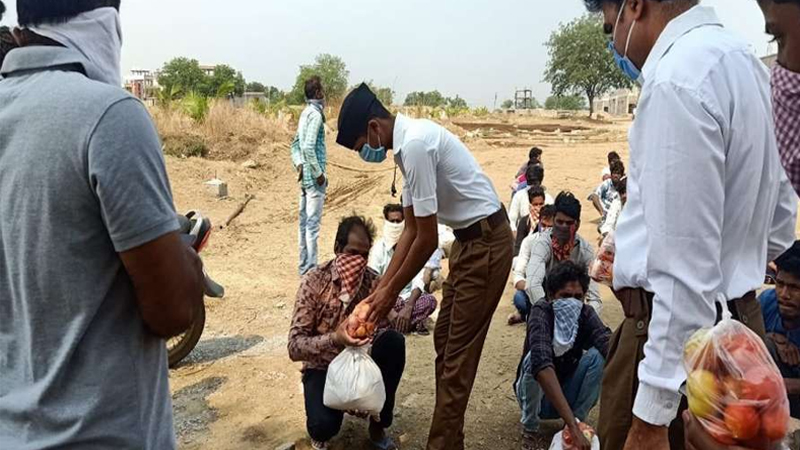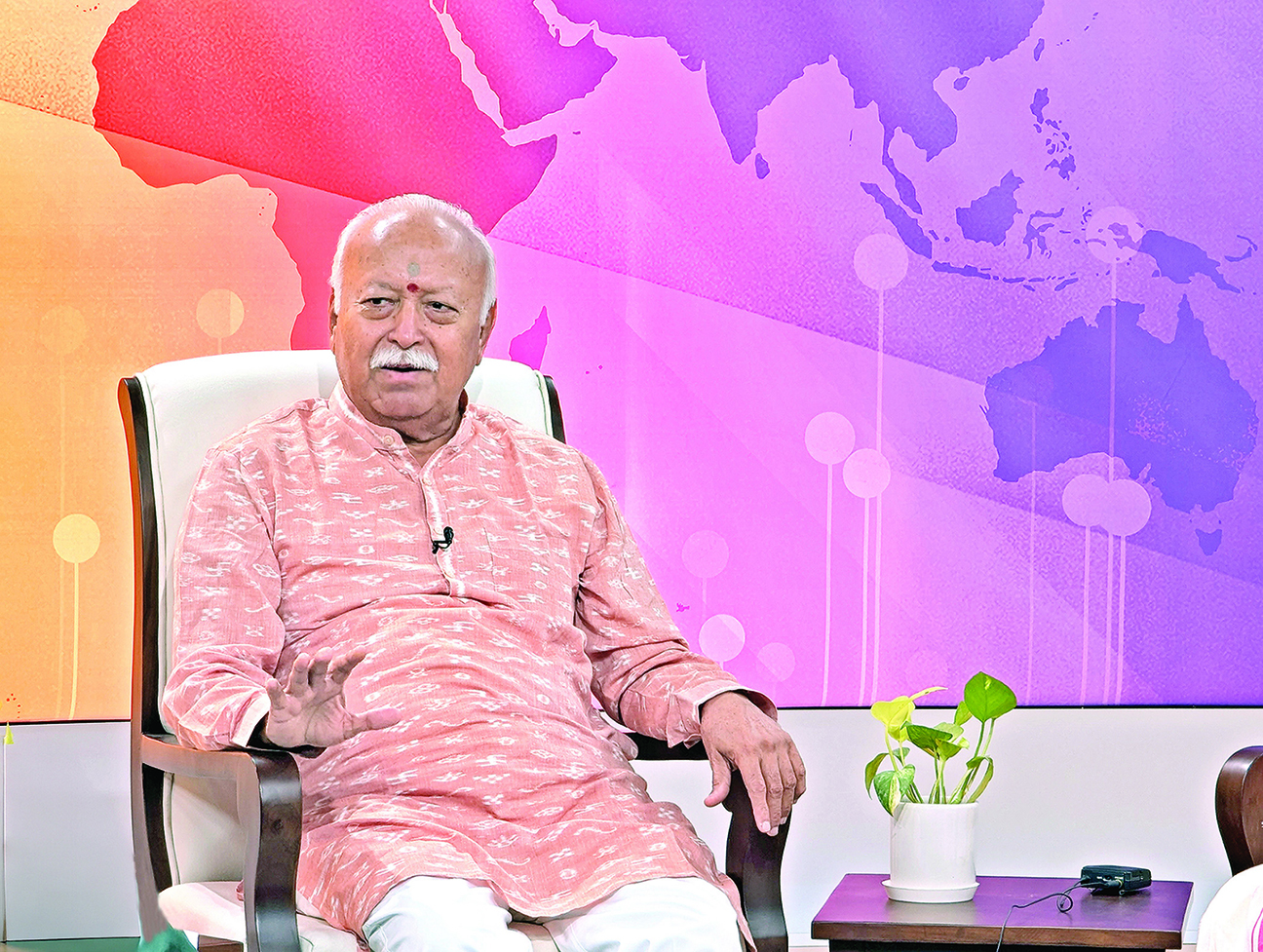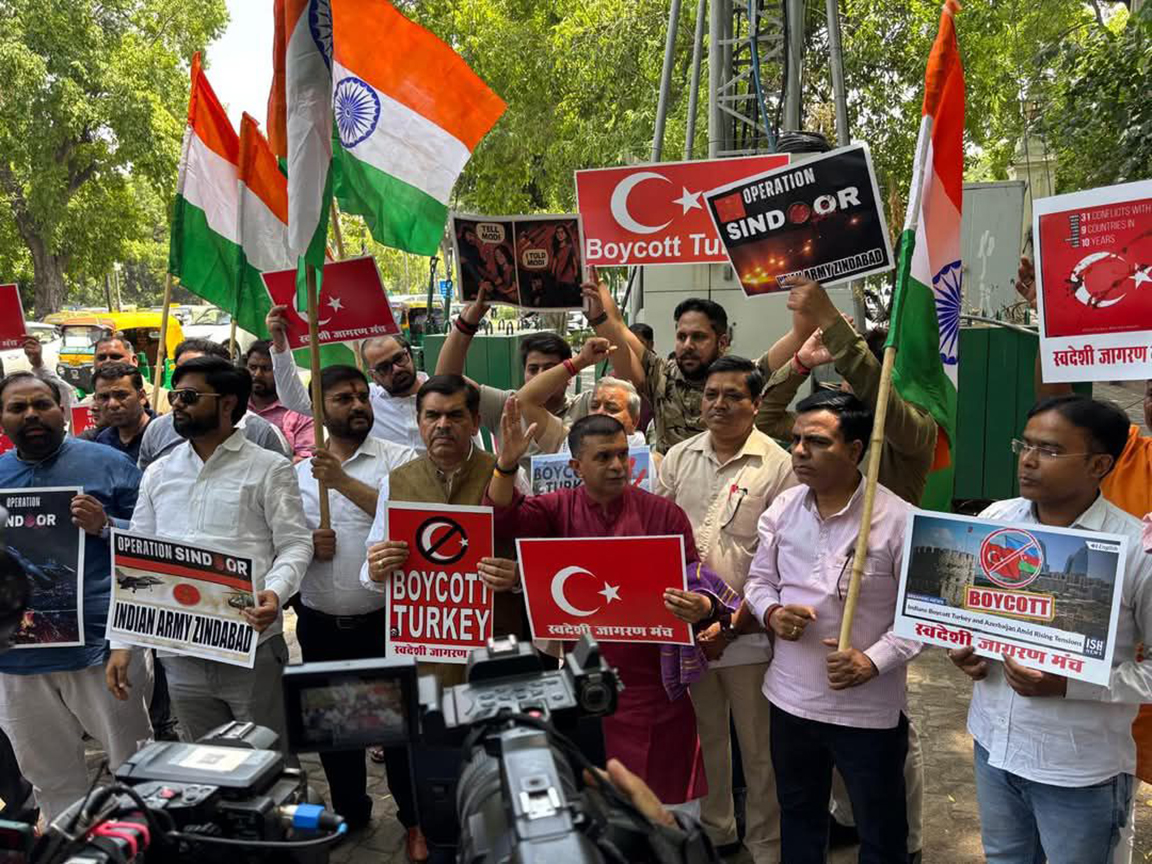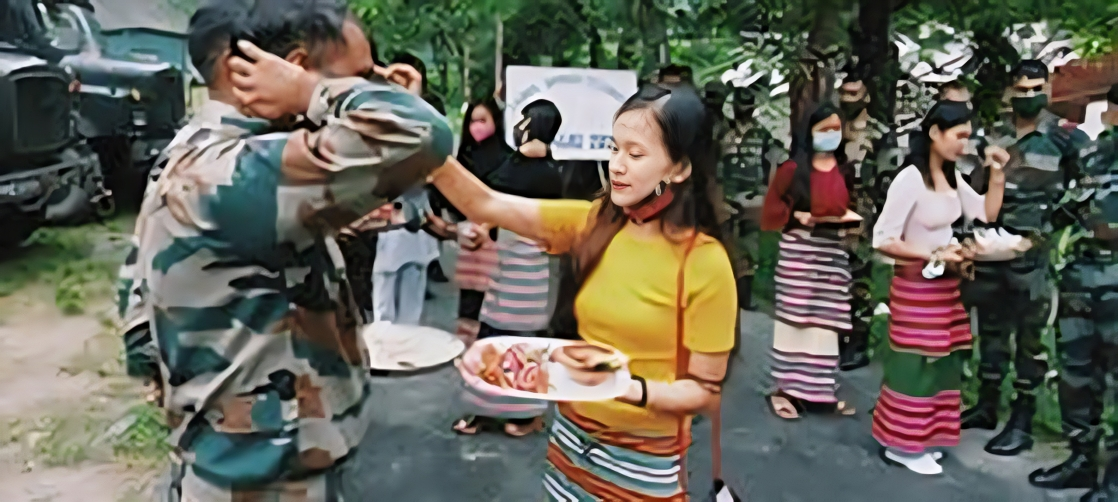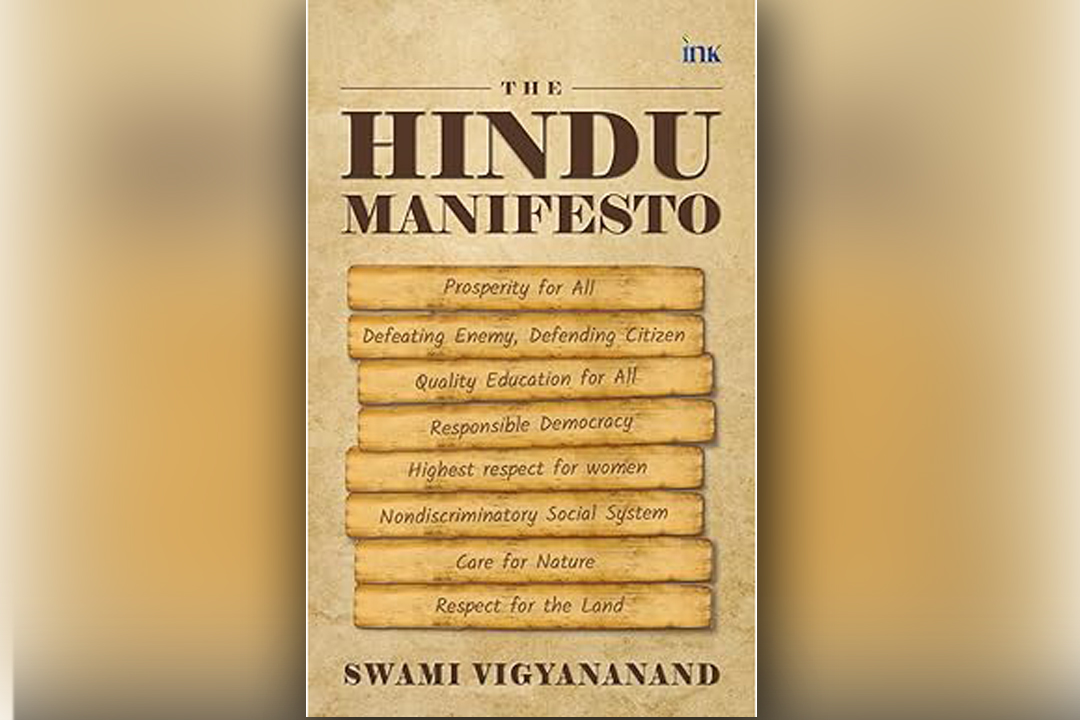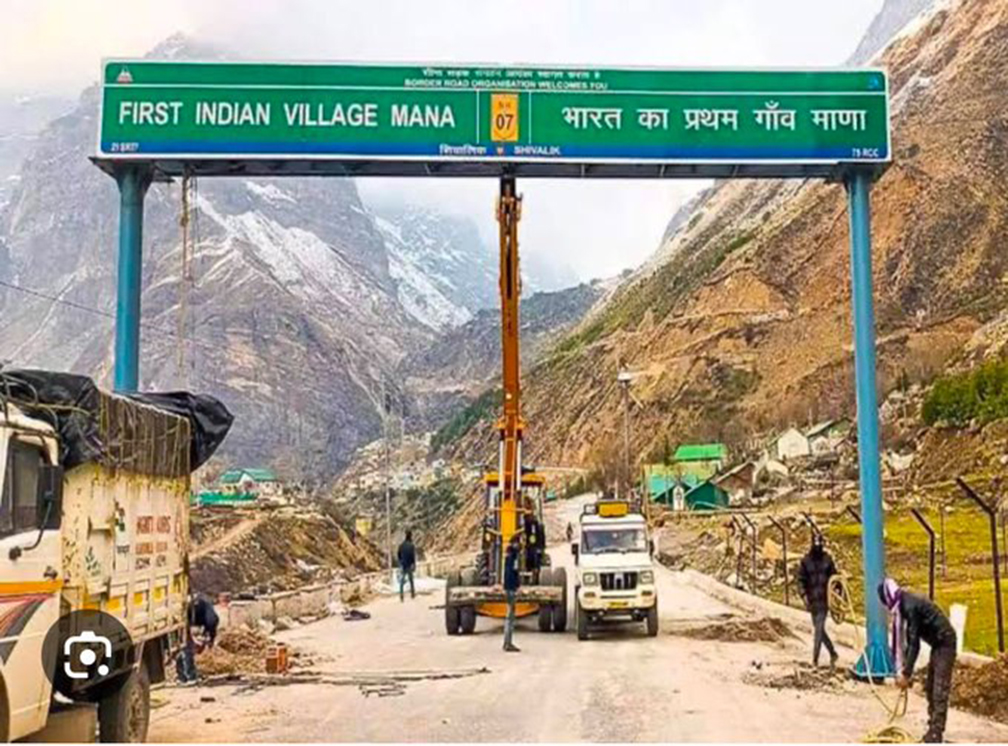The speeches of M S Golwalkar on Dr Keshav Baliram Hedgewar, the founding Sarsanghachalak of the Rashtriya Swayamsevak Sangh
Updated: February 1, 2023 14:26
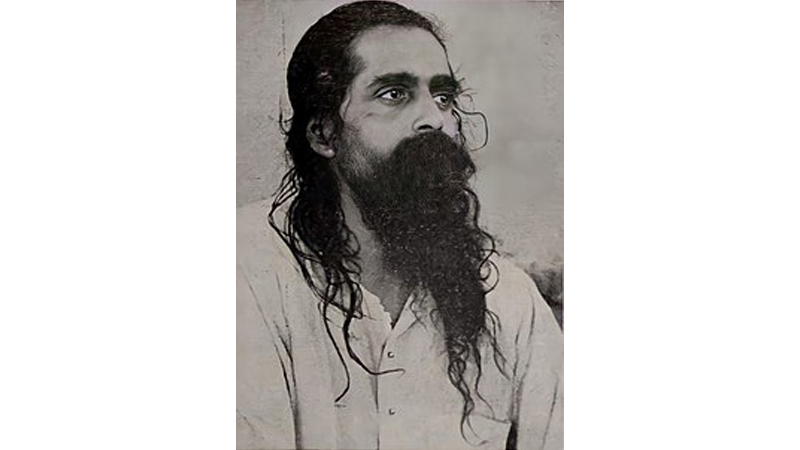
| The Ideal Incarnate |
Doctor Keshav Baliram Hedgewar, the founder of the Rashtriya Swayamsevak Sangh, was born in 1889 in Nagpur. From his early childhood until his very last, his life burned like a steady lamp in the cause of the motherland. Even as a child of eight he threw away in disgust the sweets given to him in his school on Queen Victoria’s birthday saying that it was a sign of slavery. He amazed his elders by his strange questions like, “How is it that these Englishmen coming from thousands of miles away have become our rulers?” When he was in high school, he was rusticated for lighting the flame of Vande Mataram movement among the students. He had, as it were, imbibed the spirit of undiluted patriotism right from his mother’s womb.
Rarity Among Rarities
After matriculating from Poona, he chose Calcutta, then the home of revolutionaries, with a view to studying their movement at close quarters and participating in it. He soon became one with the Bengalis in their life customs. He plunged into the inspiring political and social activities there and soon became the inspiring centre of a band of patriotic young men drawn from all over the country.
When he returned to Nagpur as a young and brilliant doctor, many eyes were riveted upon him with fond hopes about the ‘bright career’ that awaited him. Many were the matrimonial approaches made to him. But his was not a life to be chained to the narrow confines of family. By way of a final to all such proposals he wrote to his uncle Abaji Hedgewar, “I have pledged my life to an ideal. I have staked my all at its altar. Where then shall I find time and energy to indulge in personal pleasures and family life?”
Be it remembered; he was born in a family grovelling in stark poverty. We may come across persons born in affluence, who have no need to worry about their bellies or of their kith and kin, coming out for national work, though, of course, even such instances are rare. But Doctorji was a rarity among rarities. Though stark poverty and half-starvation was staring in the face, he never thought of earning a single pie for himself or his family. He never practised though he was a doctor. He preferred to become the ‘Doctor of the nation’.
Like a Lamp
Right up to his very end, dire poverty remained his faithful companion. For months on end, he carried on with hardly one full meal a day. Many times, he was in tattered clothes. He was ever short of the barest necessities of life. One day, a gentleman called on Doctorji. As the conversation was ending, Doctorji requested him to stay for tea and sent word to his sister-in-law to prepare tea. Some minutes passed; there was no tea. Some more minutes; still no tea came. The gentleman was in a hurry to go. Doctor ji went inside to find out what the matter was. And he found nothing except cold water and his sister-in-law quietly sitting in a corner! There was no one else to go to market and bring the necessary things. So Doctorji himself went out, brought sugar and tea, and after a short while tea was served to the gentleman. That gentleman was shrewd enough to understand the situation. Till then he had not the least scent of the monetary plight of Doctorji though he was acquainted with him for a long time.
In fact, looking at the ever-smiling face of Doctorji, his radiant enthusiasm, his infectious laughter, his captivating manners, shedding sweetness and joy all-round, no one could imagine the extremities under which he was living. He was like a lamp, which burns itself silently but sheds warmth and light all-round.
Immediately after the incident, the gentleman sent for me and inquired in detail about Doctorji’s monetary condition. He was shocked to know the abject situation. He became restless and angrily asked me, “Why have you not made arrangements to remove his financial worries?” I replied, “How can ‘Ekadashi’ fill the belly of ‘Shivaratri?’ He became grave for a while and told me, “I simply cannot stand this. You should accept twenty-five rupees every month from me at least to meet the expenses for Doctorji’s guests. But take care, let this not reach his ears!” I suggested that he himself should propose it to Doctor ji. But knowing as he did Doctorji’s strong views in the matter, he also did not dare broach the subject with Doctorji, and there the matter rested.
An Adage Disproved
In addition to his burning idealism, he was a glowing example of the rarest of virtues – the will to reform oneself in conformity with the chosen mission in life. He was born in a family known for its violent and fiery temper. Doctorji too inherited that ancestral ‘heritage’ in full. It is stated that inherited tendencies and habits die hard – Swabhavo duratikramah. The queer saying, “Man should be careful in the choice of his parents”, expresses the same idea. But all such self-weakening ideas were proved false by Doctorji. Since the day he resolved to build an organisation, wherein people of varied natures and qualities were to be blended into an organised and harmonious whole, he decided to reform himself. Those who had seen him before were surprised to find him a completely transformed man. After he founded the organisation rarely did anyone see him using a harsh word or getting upset in the face of even the gravest provocation. If anybody spoke to him harshly he would just smile and that would wear away the edge of opposition. Doubtless, his inner fire would erupt sometimes – but that was when he used to find insults and ignominy heaped upon our nation and people mutely submitting to all that.
Steadily and with stupendous self-effort Doctorji had transformed himself in every little detail of his behaviour as a moving and living example of a worker dedicated to the mission of national reorganisation based on the highest values of our cultural heritage. He had realised from his experience that fiery public speeches, however thrilling for the moment, would never help to build an enduring organisation of dedicated hearts, which will burn like a steady flame amidst all tempests of temptations and adversities. On the contrary, such intemperate speeches would only harm the organisation by inculcating, though unconsciously, a mentality of finding cheap satisfaction in criticising and exposing one’s opponents. Such a mentality could have no place in an organisation of the type of the Sangh, which sought self-reformation in society, knowing as it did the one lesson of our history that our people alone, and not outsiders, are responsible for our degeneration and disaster.
Before the founding of the Sangh, Doctorji himself was a fiery speaker. In 1921, during the non-cooperation movement, he was arrested for one such of his speeches. He was produced before the court on the charge of sedition. After listening to his spirited defence in the court the magistrate remarked, “His defence is more seditious than his speech!” But after the starting of the Sangh he fully restrained his expressions. Thereafter his speeches, though charged with feeling and capable of burning themselves into the heart of the listeners, were never provocative and violent. Even in informal chitchat his words carried a wave of sweetness and appeal to the heart. He had known by experience that sweetness of speech was a ‘must’ for a national organiser.
Yudhishthira Reborn
In all this transformation there was nothing artificial or superficial. It was so deep and enduring that it became the very texture of his nature expressing itself spontaneously in thought, word and action. His was not the ‘long-distance popularity’ which would vanish like a soap bubble on closer contact and scrutiny. There is a saying, “No hero is a hero unto his own valet.” But in his case, the opposite was true; the more one came near him, the more would one love and adore him. His character was the same in private as in public – one sweet harmonious whole. Such was his pure, noble, radiant and transparent character that even those who opposed him in the public field had not a word of reproach or abuse about his person.
There was a famous barrister in Nagpur by name Abhyankar, who was a leading political figure of that province. He had a voice of thunder and a knack for picking holes in his opponents’ character. And he used these qualities in full measure during elections to expose and browbeat his opponents. Once Dr. Moonje contested against him in elections. The barrister imagined that Dr. Moonje had as one of his main supporters Doctorji and his Sangh. So he decided to attack Doctorji and Sangh in his public speech. In his speech he directed his tirade against every supporter of Dr. Moonje, but when he began referring to Doctorji his tone at once softened. He frankly confessed that he would not find a single word by way of abuse against Dr. Hedgewar. Just imagine, such a public confession amidst a virulent election campaign and from such a person!
In fact, Doctorji’s relations even with his opponents went deeper than could be affected by any superficial differences. Right from his Calcutta days he had cultivated an attitude of love and regard and co-operation towards all persons and organisations devoted to the cause of national emancipation-even those with whom he did not see eye to eye. Political jealousies found no place in him. The flame of patriotism burning in his heart was too radiant to allow the shadows of parochial considerations to fall anywhere near him.
Once a friend approached Doctorji in the night to urgently secure for him a loan of five hundred rupees. It was nearing midnight and Doctorji was in a fix. Then he got up, went directly to Sri Abhyankar and made a request. Without a word he brought the amount and handed it over to Doctorji. Doctorji asked him for paper and pen so that he could write out a promissory note. Sri Abhyankar replied, “Doctorsaheb, have I gone out of my senses that I should take a promissory note from Dr. Hedgewar? All Nagpur would laugh at me!”
Such was the absolute faith and confidence that his sterling character had inspired even in the minds of his public adversaries. He was like Yudhishthira who would address even Duryodhana as Suyodhana. When the incredible news of Ashwathama spread in the battlefield, Drona decided to verify its truth from Yudhishthira, his chief adversary! Such was his rectitude of conduct, which had made others, his friends and foes alike, to trust him. Doctorji was, as it were, the modern reincarnation of Yudhishthira. He was verily a man with no foes and only friends – an Ajatashatru.
Once, the Government of the then Central Provinces and Berar was seized with an apprehension that the growing strength of the Sangh might prove a menace to the ‘communal peace’ in the province. The Government sent out a circular in 1932 prohibiting its servants from taking part in the activities of the Sangh. The municipalities and the district boards were also advised to take similar steps. There was an uproar in the province at the thoughtless and anti-national step of the Government. It found its echo in the Provincial Assembly also. A censure motion against the Government was moved in the Assembly. And it was supported not only by the Hindu members but also the Muslim, Christian, Parsi and all other members. It was preposterous, they all asserted in one voice, to imagine that an organisation headed by Dr. Hedgewar could be against any community. The ministry itself had to quit office shortly after that.
The Irresistible
This feature of his character had endowed him with such a rare power of personality that even persons notorious for their arrogance and turbulence would behave in a decent and gentle manner in the presence of Doctorji. There was a person in Nagpur who used to call himself a ‘general’, he had taken a vow not to allow any meeting, which did not have him as the president, to go undisturbed. The ‘general’ had an army of goondas, who would fall upon such an ‘unauthorised’ meeting and within few minutes the meeting would end in confusion and chaos. During those days a friend of Doctor ji coming from outside was to address a meeting in Nagpur. But the promoters of the meeting had apprehensions that the ‘general’ would not allow the meeting to go on. But Doctorji’s calm assurance gave them confidence and they arranged the meeting. As the meeting commenced, the ‘general’ arrived with his ‘army’. Seeing him coming, Doctorji rose and welcomed him with great warmth and made him sit by his side. The speaker too was in his full spirits and scathingly criticised the party to which the ‘general’ belonged. The ‘general’ was wild with rage, throwing his glances here and there; but seeing the calm, confident and majestic figure of Doctorji sitting just beside him, a cold shiver would pass through his body and he would sit back helplessly in his chair. The meeting went on peacefully for over two hours. After the meeting was over his followers pestered him with questions for keeping mum. He only replied, “What could I do? That man was sitting beside me!”
Incomparable Unifier
What a mountain-load of anxieties and torments Doctorji must have been carrying in his bosom to be able to hold together countless number of men, mould each one of them after the image of an ideal national worker and set up enduring conventions and inspiring examples as basis for the organised life of whole nation-and all this under extremely hard conditions of personal existence! But the most amazing part was, no one could guess these deep undercurrents coursing through his being. Whoever came in his contact would go back bathed in the fresh springs of joy and laughter gushing forth from him. Various and diverse were the types of persons who invariably surrounded him. His friends would jocularly say that Doctorji was maintaining a ‘human zoo’! But no one in the ‘zoo’ felt himself out of tune while in the company of Doctorji. The young and the aged, the orthodox and the modern, the educated and the uneducated, the rich and the poor would all find in him a note of common interest. Such was his spirit of identification and the sweep of his dexterity. To him no man, however low and deficient in the eyes of others, was worthless.
Self-Effaced
At the root of that exceptional quality lay the spirit of complete humility, unsullied by even the least traces of ego. Infatuation for name or fame, position or power, never touched him. Right from the inception of the Sangh, he was constantly on the look-out for a suitable person who could be the head of the organisation. And he himself wanted to remain as his humble follower, thus setting up a living example for all other workers. In fact, he made repeated efforts to bring in a great Hindu leader as its chief, but in vain. That great man with all his other virtues could not grasp the potentialities of the Sangh and make up his mind for that historic role. Doctorji was sorely disappointed, but he continued his search. He remained naturally the chief of the organisation on the sheer merit of his virtues, like the lion, which is the natural king of the forest – swayameva mrigendrata. But he could not till the very end reconcile himself to that position.
Despite his towering height Doctorji never exhibited any airs. He would even restrain the natural and spontaneous expressions of adoration for him by his co-workers and Swayamsevaks. He was severely uncompromising in that regard. In 1940 he was returning to Nagpur after visiting the training camp at Poona. I had gone to the Railway Station to receive him. As the train arrived, we found him standing at the entrance of the compartment, his face beaming with a smile. Just as I advanced towards him to offer a garland, I met his stern forbidding glance. I stopped half-way with my hands half-stretched. Immediately he smiled and remarked, “I am coming to my own home. Where is the need for all this? In fact, we should welcome our honoured guest.” And he indicated the gentleman who was accompanying him. I offered him that garland. I had no opportunity to garland Doctorji all through his life. I could only garland his body after he had left us. He was equally averse to being photographed. It was only rarely and after a prolonged tussle with his co-workers that he would consent to his photograph being taken.
Though stern and unsparing to himself, what an ocean of love he was to each one of us! Words fail to describe the depth of that pure and selfless love. The boundless affection of the mother’s heart, the sleepless care and diligence of the father and the inspiring guidance of the guru found their culmination in that single bosom. I for one feel it my proud privilege to worship him as my ideal. The worship of such a soul transcends the worship of an individual and becomes the worship of the ideal itself. He is verily my chosen deity.
Philosophy of Action
Single-minded devotion, sterling character, matchless organisational skill, unflinching faith in the ultimate success of the cause he had taken up as his life-mission and limitless capacity for effort and exertion. His co-workers were torn with anxiety about his worsening health. Some warned that his body would not last long if he continued in that strain. But he would reply to all such queries in a simple sentence, “After all, my body is for the sake of work” and would close the matter. He knew no rest or respite. His was the philosophy of action. He was for ceaseless and intense action, especially during the days of the youth. “What is the use of resting during the days of youth only to prolong one’s life up to old age when the body becomes useless for any active work?” he used to ask. If out of compulsion of his co-workers he consented for rest, he would not rest without starting a few shakhas in and around that place!
In 1939 his illness became very acute. Doctors advised him complete rest. I was with him at that time. Treatment was going on. Medicines were regularly given, but to no purpose. The doctor who was treating him was perplexed. While checking the details of the treatment, he inquired at what time Doctorji would go to sleep. I replied, “As usual at 1 or 1.30 in the night.” The doctor was shocked to hear that. He said, “That is why he is not improving. Probably you are not allowing him to sleep early. He must go to bed by 10 o’clock.” I confessed my inability to make him sleep so early. The doctor said, “Well, if you cannot do it, I will myself come and do it.” I welcomed his proposal. That day the doctor came at 9 o’clock in the night. Doctorji had just taken his food and was alone in his room. As it was not good to sleep immediately after taking food, the doctor began chitchatting with Doctorji for a while. I was sitting outside all the while. When, however, the doctor felt drowsy, and looked at his watch, it was past 1 o’clock! He got up hurriedly, instructed Doctorji to sleep and came out. As he started out, I just enquired of him the time. In an apologetic tone he said, “I forgot myself in talking!” and went away.
Offer Flower of Youth
Doctorji stuck to that practice even during his serious illness. He would call the workers at night and talk to them singly or in groups till late in the night. All our efforts to dissuade him proved futile before his grim resolve to expand the work at peak speed. Even the steel frame of his body could not cope for long with his intensely dynamic spirit. Within fifteen years of the starting of the organisation, his body was completely consumed by the fire of idealism. It was not that he was unaware of the approaching end. In fact, he used to say, “I know quite well the nature of my malady. I also know its remedy. But I have simply no time to spare for treatment. I do visualise its result. But I cannot help it. God’s will be done.”
Just as a yogi finds fulfillment in offering himself as an oblation in the fire of yoga manifested in his body, so did Doctorji offer his body in the fire of suffering and sacrifice. That has been our glorious tradition. But today we often hear that we should not exert ourselves too much in our younger days lest our lifetime be cut short. Doctorji ridiculed this advice of wasting the precious moments of youth only to drag on in old age for some more years. One should in fact offer oneself at the altar of the Mother when the flower of youth is in full bloom shedding fragrance and radiance all-round. It would be a sacrilege to offer a faded flower devoid of colour and odour in the worship on one’s chosen deity. This was his concept of fruitfulness of human life; this was how he lived and this was how he died.
Living and Dying
His was not an ordinary death. It was a steady and consuming fire stretched over the entire period of his youth. There are some, who sacrifice their lives in a flash of martyrdom. True, that is also glorious and inspiring. But to burn oneself every moment of one’s life to light up countless other hearts is a tapasya of the highest order. Like Shibi of the olden days Doctorji cut his own flesh bit by bit in order to protect the ‘dove’ of society. Like Dadhichi, who gave his bones to be forged into a deadly weapon to slay the demon Vritasura, Doctorji too smilingly transfused his lifeblood to society till the last drop. That was how Shankaracharya died at the age of thirty-two, Vivekananda at thirty-nine and Shivaji at fifty. Doctorji too died at fifty. And it is they who live eternally!
How Words Derive Power
Words get charged with irresistible power when uttered by such souls. Doctorji’s words used to be very simple – as if he was speaking to a child. But what a force they carried! Once Dr. Shyama Prasad Mukherjee of revered memory came to see Doctorji with a desire to discuss a serious problem with him. At that time Doctorji was too ill – and that was to be his last illness – to engage himself in a long discussion. So, I requested Dr. Mukherjee to have a preliminary talk over the subject with me and if anything remained, he could go to Doctorji for a final answer. He agreed. We had a prolonged discussion. And although each one of his queries and doubts was answered, still he remained unsatisfied. So we went to Doctorji, he put the same question to Doctorji. And Doctorji replied in a few words, conveying the same answer as I had given. But to my astonishment I heard Dr. Mukherjee say, “Now I am completely satisfied.” That incident gave me the lesson of my life that it was the character, the penance, the sacrifices of a person that impart power to his words. Arguments, discussions, flashes of intellect, all pale into dismal dimness before that supreme power.
A Child of Greatness
Excelling though in all that go to make an epoch-maker, he remained all through his life like a child-simple, unassuming, without any airs, speaking to one and all in a spirit of intimacy, laughing, joking and appreciating the smallest of virtues in others.
Once in a weekly meeting of some advocates in the Sangh, several issues connected with the organisation were being discussed in a free and informal manner – someone mooting a query regarding the future set-up of the Sangh, someone else suggesting the formation of a formal central committee and so on. Then abruptly one of them posed the question, “What, after all, is at the root of the Sangh?” “Well, it is Doctorsaheb”, I simply said. An old gentleman was present in the meeting who had known Doctorji form his boyhood. Doctorji would often go to him seeking his suggestions and guidance. Obviously, he was deeply moved to hear my words regarding Doctorji. He was surprised to find that all of a sudden, the ‘boy Keshav’ had grown to such heights. A flash of new realisation, as it were, dawned upon him. After the meeting he went to Doctorji and remarked affectionately, “Doctor, how great you have become! All the while I was imagining you as the same old lad Keshav!”
The greatest of men grace the world stage often cast that spell to make others unaware of their greatness, so that they may not shirk and shudder at their greatness but come and freely mix with them in a spirit of comradeship. Sri Krishna by his childish pranks had cast a spell over all in the Gokula. No one, not even Yashoda, would remember that he was God Incarnate Himself. Once when he was reported to have eaten dust and Yashoda forced him to open his mouth, she saw illimitable universes dancing in that little cavity. She was shocked and dumbfounded. But that was only for the moment. The same old smiling, mischievous, teasing pranks of the child Krishna made her forget that fleeting realisation.
Doctorji’s disarming simplicity had cast a similar spell upon all those who came near him, even his nearest friends and co-workers. It was only rarely that they would remember, as if in a flash, that they were in the company of a great soul of unsurpassable majesty born but once in centuries for the redemption of the people. And they would be surprised and even shocked at the free and almost equal way in which they mixed with him, sometimes even taking liberties with him! But that was all for a moment. Again, the simple, smiling figure of Doctorji would cast its spell and they would forget all about it.
Such was our Doctorji, the founder of the Sangh, the Hindu ideal of man in flesh and blood, the embodiment of the saying, क्रियासिध्दिः सत्त्वे भवति महतां नोपकरणे (The great ones achieve great tasks not because of external aids but by their intrinsic merit), a Guiding Light for all generations to fashion their lives in its effulgence for glorious and immortal national life.
(Compiled from the speech of Sri Guruji at the 3rd year Sangh Siksha Varg in Nagpur)
